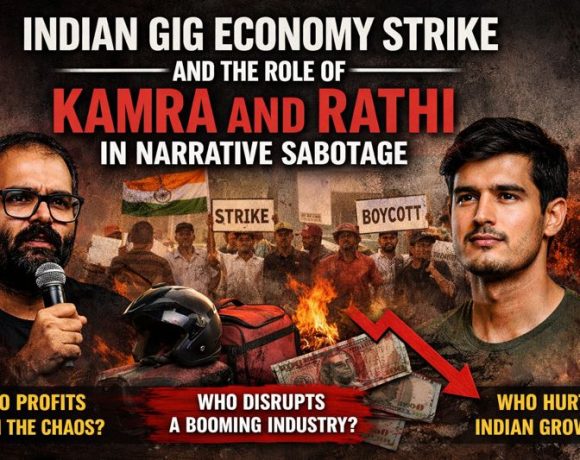
India’s Internet Censorship: Ban Comedy, Allow Gambling – Makes Perfect Sense!
Ranveer’s recent comments? Absolute nonsense. But the way the law is handling the situation? Even worse. Once again, we’re watching the great Indian tradition of selective outrage unfold.
This is a country where online gambling flourishes, unregulated crypto schemes rope in clueless investors, and “family-friendly” platforms shamelessly slip in adult web series ads between children’s gaming sessions. And yet, when a comedian or content creator says something offensive, the legal machinery suddenly wakes up, as if that’s the biggest problem facing Indian society.
YouTube definitely needs to do a better job moderating content. No argument there. But let’s be real—if a child is being exposed to inappropriate material, it’s far more likely to be through the garbage advertising ecosystem than through a comedy clip. A kid playing an innocent mobile game shouldn’t be greeted by a steamy web series trailer featuring seductive whispers and dimly lit bedroom scenes. But that’s exactly what happens. Repeatedly. And where are the moral guardians then? Nowhere. Because when it comes to regulating actual problems, the authorities are mysteriously absent.
Indian internet censorship is a joke. Not because it doesn’t exist, but because it is laughably inconsistent. Instead of creating clear, logical policies, our politicians operate in reaction mode. Outrage-driven policymaking is their specialty. Something goes viral, people get offended, and boom—arrests, bans, and moral posturing follow. Meanwhile, the real dangers of the digital world—gambling addiction, financial scams, unfiltered explicit content—are happily ignored.
If protecting children was truly the goal, there would be stricter regulations on digital advertising. Kids wouldn’t be bombarded with predatory ads disguised as “mature content for mature audiences” (as if a 10-year-old is going to click “No, I am not 18” and close the tab). Instead, we get random crackdowns on comedians and content creators while multi-million dollar gambling platforms and shady crypto influencers operate freely. Priorities!
But here’s the best part: Indian internet policies are almost entirely designed around public sentiment, not logic. If people are angry enough, the government will take action. If nobody’s making noise, then anything goes. That’s why a stand-up special gets more legal scrutiny than the gambling app your uncle just lost his life savings on.
And let’s not even get started on how absurd it is to police offensive jokes in a country where data is dirt cheap and unfiltered internet access is the norm. The average Indian smartphone user has unrestricted access to everything—from hardcore pornography to financial scams—at the tap of a screen. But sure, let’s focus on stand-up comedy as the biggest moral threat to society.
If lawmakers genuinely cared about protecting children, they’d start by regulating the platforms that actually influence them. They’d crack down on misleading advertising, implement stronger parental controls, and introduce real consequences for companies that prioritize revenue over responsibility. Instead, we get grandstanding, censorship, and yet another example of misplaced priorities.
At this point, Indian internet censorship isn’t about protecting society. It’s about controlling the conversation. It’s about politicians and bureaucrats deciding what’s acceptable based on their personal biases, not on what actually matters. Until that changes, we’ll continue living in this bizarre digital landscape—where jokes are dangerous, gambling is fine, and the biggest threat to Indian morality is apparently a comedian with a microphone.

















